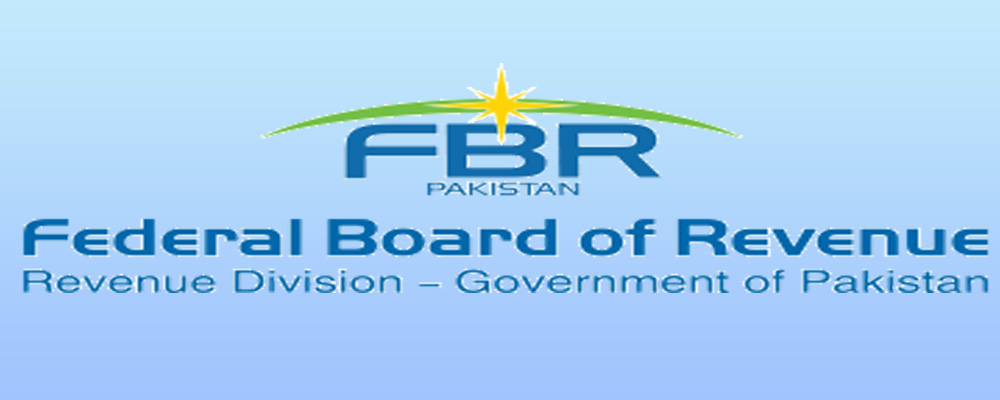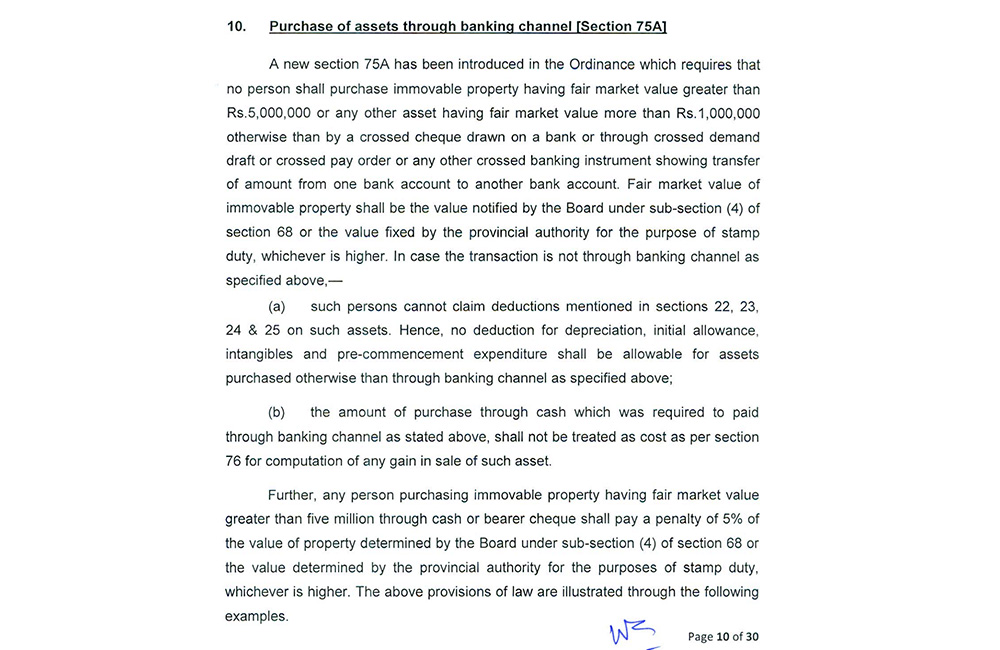The Federal Board of Revenue (FBR) in Pakistan is taking strong measures to address the widespread use of cash transactions. Senior FBR officials have revealed that they intend to impose severe Penalties on Real Estate cash transactions and improve monitoring mechanisms to ensure compliance with these regulations.
The Federal Board of Revenue (FBR) in Pakistan has recently announced penalties on cash transactions in the real estate market in a significant move to regulate the real estate sector and boost tax collection. This initiative aims to increase transparency and accountability in the industry by curbing the rampant use of cash in property transactions.

Back in 2019, an amendment known as Section 75A was introduced into the Income Tax Ordinance, 2001, which aimed to reshape the landscape of real estate transactions in Pakistan. This amendment establishes that no individual can acquire immovable property with a fair market value exceeding Rs. 5,000,000 or any other asset valued at more than Rs. 1,000,000 without using specified banking instruments such as crossed cheques, demand drafts, pay orders, or any other method that verifies the transfer of funds between bank accounts.
To clarify the implications of these regulations, let’s consider an example. Suppose an individual intends to buy a house worth 6 million rupees but decides to pay the seller in cash, disregarding Section 75A. In this case, the individual is violating the law by purchasing an immovable property worth more than 5 million rupees using cash, which is explicitly prohibited.
The Amendment in Income Tax Ordinance 2001
The key to understanding these penalties lies in the amendment made to the Income Tax Ordinance 2001, specifically in section 75A. This amendment stipulates that individuals involved in property transactions or acquiring assets exceeding a value of 50 lakh (5 million PKR) must conduct their transactions through a bank. This provision aligns with the global trend of promoting financial transparency and reducing the prevalence of undeclared or unaccounted-for wealth.
Another significant aspect of this amendment is the determination of property prices. Under the new regulations, the property price will be determined by the provincial authority or the board of the respective city. This change seeks to curb the practice of underreporting property prices, which has been a common evasion tactic.

Penalties on Real Estate Cash Transactions
Non-compliance with this amendment can lead to serious consequences for both buyers and sellers in the real estate market. One of the most immediate penalties is the imposition of fines. According to the newly amended ordinance, a buyer who does not comply with the requirement to use a bank for transactions can face a penalty of up to 5% of the real estate value. This is a substantial amount that can significantly impact the overall cost of the property transaction.

The Implications
Enhanced Transparency: One of the primary goals of these penalties is to enhance transparency within the real estate market. By mandating transactions through banks and involving provincial authorities in price determination, the government aims to reduce the prevalence of undisclosed wealth and encourage accurate reporting of property values.
Increased Tax Collection: With more transactions occurring through formal banking channels, the government anticipates a boost in tax collection. This additional revenue can be directed towards vital public services and infrastructure development.
Investor Caution: Real estate investors, whether local or international, need to be aware of these new regulations. Failure to comply with them could lead to unexpected financial penalties, making it imperative for investors to navigate the market with caution.
Impact on Property Prices: The involvement of provincial authorities in determining property prices may lead to more accurate valuations. While this can help combat underreporting, it may also impact property prices in some areas. Buyers and sellers should be prepared for potential fluctuations in property values.
Also, Read Our Blog: NHA Has Shared the Progress of Under-Construction Motorways
Conclusion
The imposition of penalties on cash transactions in the real estate sector by the FBR marks a significant step towards regulating Pakistan’s property industry and increasing tax collection. By compelling transactions through banks and involving provincial authorities in price determination, the government aims to promote transparency and accountability within the sector. However, it is crucial for real estate investors and buyers to familiarize themselves with these new regulations and ensure compliance to avoid the potential financial consequences of non-compliance. As these measures take effect, they have the potential to reshape the landscape of Pakistan’s real estate market for the better, benefiting both the government and responsible investors.

